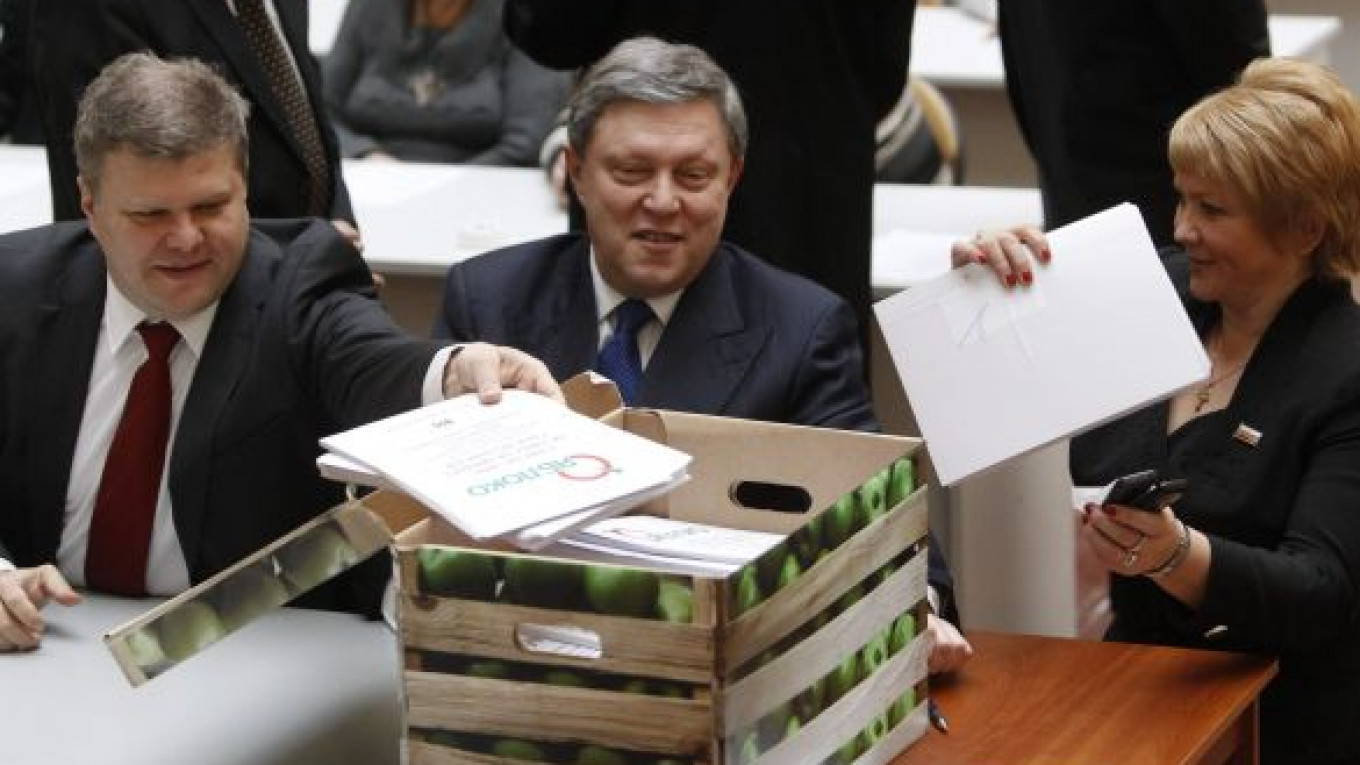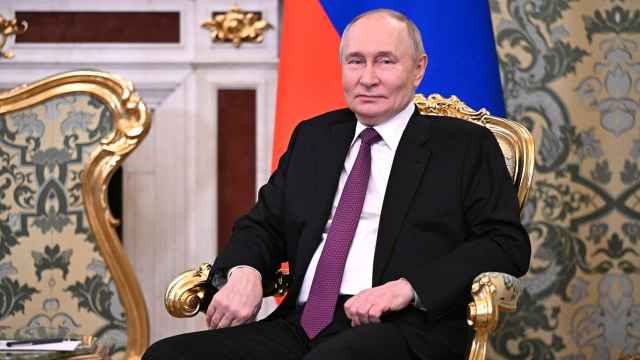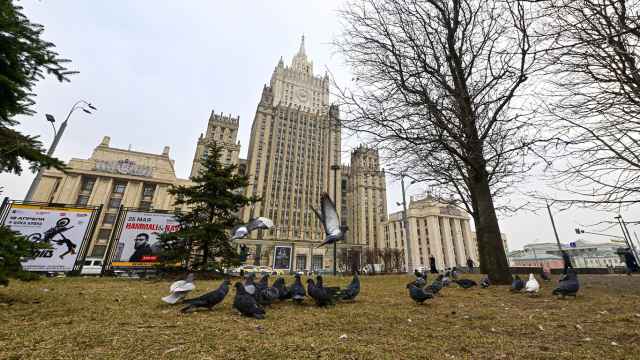Yabloko leader Grigory Yavlinsky is accusing the Central Elections Commission of being overly harsh in its interpretation of the law when it removed him from the presidential race for having collected too many invalid signatures.
Yavlinsky admitted in a blog post late Sunday that more than 137,000 of the signatures presented on his behalf were scanned copies of actual signatures, but insisted that this was legal.
"There is no ban in the law, neither direct nor indirect, on presenting copied signatures," he said. He stressed that all copied signatures were based on real ones and that campaign staff resorted to e-mailing scans only when it was impossible to get originals to Moscow in time.
The Central Elections Commission officially Yavlinsky's bid last Friday, when it declared that 153,938 of 600,000 signatures it had inspected — or 25.66 percent — were invalid.
But Yavlinsky said that if you subtract the photocopied signatures, just 16,446 signatures — or 2.74 percent of those reviewed — were truly invalid.
Commission secretary Nikolai Konkin said in televised comments over the weekend that a candidate had never before presented photocopied signatures. Commission chairman Vladimir Churov said the number of red-flagged signatures surprised him.
But Yavlinsky said the outcome was a foregone conclusion because it was ordered from above: "The [Kremlin] forbade to register me … so that there won't be an alternative [candidate]. The Central Elections Commission fulfilled its order," he .
The dispute highlights the difficulties presented by the rule that candidates without a parliamentary party must present signatures from 2 million supporters.
Adding to the challenge is the requirement that voters can only sign the lists in the region they are registered in and the fact that the signatures had to be collected over a relatively short time period, including the 10-day New Year's holiday.
Those requirements regularly trigger accusations of selective enforcement under Kremlin orders.
In the 2008 , Andrei Bogdanov, leader of the obscure Democratic Party, had his 2 million signatures approved, but garnered less than half that in the actual election with 968,344 votes.
In the present campaign, the Central Elections Commission has only accepted the signatures for Mikhail Prokhorov as valid — prompting fresh allegations that the billionaire has made a deal with the Kremlin, a charge he has denied.
Yabloko activists said Monday that they doubt the quality of Prokhorov's signatures was better than Yavlinsky's.
"I have seen his people collect signatures at airports and train stations all on one list — while people must have been from different regions," said Galina Mikhailyova, first deputy chairwoman of the party's Moscow branch.
Her suspicion was echoed by Masha Lipman, an analyst with the Carnegie Moscow Center, who argued that Prokhorov lacked Yabloko's organizational resources.
"Yavlinsky has trusted people in many regions, Prokhorov has nothing like that," she said by telephone.
However, others said the billionaire could easily compensate for this with cash.
"Prokhorov just has vast financial resources," said Leonid Gozman, a co-founder of Right Cause who left the party when Prokhorov was ousted in a coup he blamed on conservative forces in the Kremlin.
Attempts to reach Prokhorov's spokespeople for comment were unsuccessful Monday. The billionaire has said in the past that Yavlinsky's removal would be a blow to the election's legitimacy.
President Dmitry Medvedev promised in his presidential address last December to slash the number of required signatures to 300,000 for independents and 100,000 for candidates from parties not represented in parliament.
A Message from The Moscow Times:
Dear readers,
We are facing unprecedented challenges. Russia's Prosecutor General's Office has designated The Moscow Times as an "undesirable" organization, criminalizing our work and putting our staff at risk of prosecution. This follows our earlier unjust labeling as a "foreign agent."
These actions are direct attempts to silence independent journalism in Russia. The authorities claim our work "discredits the decisions of the Russian leadership." We see things differently: we strive to provide accurate, unbiased reporting on Russia.
We, the journalists of The Moscow Times, refuse to be silenced. But to continue our work, we need your help.
Your support, no matter how small, makes a world of difference. If you can, please support us monthly starting from just $2. It's quick to set up, and every contribution makes a significant impact.
By supporting The Moscow Times, you're defending open, independent journalism in the face of repression. Thank you for standing with us.
Remind me later.







